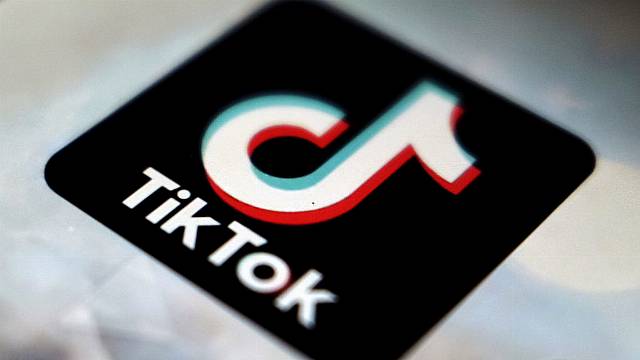Advertisers are seeking any assurances from TikTok, the viral app that helped usher in a wave of short-form video across social media, as the Chinese-owned company again faces a potential ban in the US over national security concerns.
When TikTok's chief executive officer Shou Zi Chew testifies before Congress for the first time on Thursday, advertisers will be closely watching his appearance for news as well as the reaction of lawmakers, several ad agencies told Reuters.
TikTok's US ad revenue is expected to reach $6.83 billion this year, from $780 million in 2020, according to research firm Insider Intelligence. The app, which is owned by China's ByteDance and is wildly popular among younger users, now has 150 million monthly users in the US, it said on Tuesday.
The company faces growing calls from lawmakers who are pressuring the Biden administration to ban the app over concerns that Americans' user data could fall into the hands of the Chinese government.
In recent discussions with ad buyers, TikTok representatives have stuck to the company's current talking points.
TikTok employees have played up ongoing plans to separate the user data of Americans and store it in the country. The data will be housed in a new division called US Data Security (USDS), which will be monitored by US tech company Oracle, an effort dubbed Project Texas.
Project Texas
At least one major ad firm held a call this week with TikTok sales representatives in an attempt to learn more detail about its data security practices.
Though TikTok provided an overview of Project Texas, it was unable to answer more detailed questions about how it would block US user data from the Chinese government, said an executive at the ad firm, who declined to be named to discuss a private call.
Darren D'Altorio, vice president of social media at marketing agency Wpromote, said TikTok sent an email on Tuesday to note that it had launched a new website for USDS and included answers to frequently asked questions about the initiative.
In a section of the email titled "Can the Chinese government request TikTok US user data?" the company wrote that Project Texas "prevents inappropriate access to that data, including no approval mechanism by which US data would be shared with the Chinese government".
A TikTok spokesperson said the company is engaging with advertisers "in open, fact-based, and ongoing dialogue that includes providing regular updates and addressing questions about the ways we're working to build a trusted entertainment platform for users and brands".
Even with talk of a ban, most advertisers have not changed their spending plans on TikTok, media buyers said, because discussions of a ban have lingered since 2020 without any result.
TikTok CEO Chew plans to tell lawmakers on Thursday that the company has never, and would never, share US user data with the Chinese government, according to written testimony posted by the US House of Representatives Energy and Commerce Committee.
But it is a critical moment for TikTok, which has grown exponentially in importance to advertisers as the app's user numbers have surged in the two years since then-President Donald Trump first explored a ban of the app.
Wariness
The renewed concerns over TikTok seem to have escalated quickly in the past few weeks, catching some brands off guard, D'Altorio said.
Some clients that are publicly-traded companies had been reluctant to buy ads on TikTok since 2020, and their wariness has only continued. "They say 'we don't want to touch this,'" he said.
Vinny Rinaldi, Hershey Co's head of media and analytics, said on Wednesday that the Reese’s Cup maker built a contingency plan if TikTok is shut off in the US.
Hershey spends the least on TikTok compared to other social platforms, Rinaldi said, but it’s an “area of growth (that is) working well”. His bet is that TikTok users switch to YouTube if the platform shuts down.
The current situation also makes some smaller brands with a niche audience hesitant to experiment with ads on TikTok, said Adam Telian, vice president of media services at marketing agency New Engen, which has worked with The Home Depot and Google Fiber.
"People are hesitant to make that commitment and investment at a time when they're not sure TikTok will still be around," he said.
While tension brews in Washington, TikTok has continued to roll out new tools for Madison Avenue. Last month it introduced a feature to let brands easily turn their organic TikTok videos into ads.
Advertisers that are using TikTok and seeing strong performance from their ads are recommended to stay the course, said Erik Huberman, chief executive of Hawke Media, a marketing consultancy that has worked with Red Bull and Alibaba.
Brands that have customers on TikTok will find it difficult to step away until real action happens in Washington, D'Altorio said.
"A ban isn't a ban until it's a ban," he said. -Reuters







